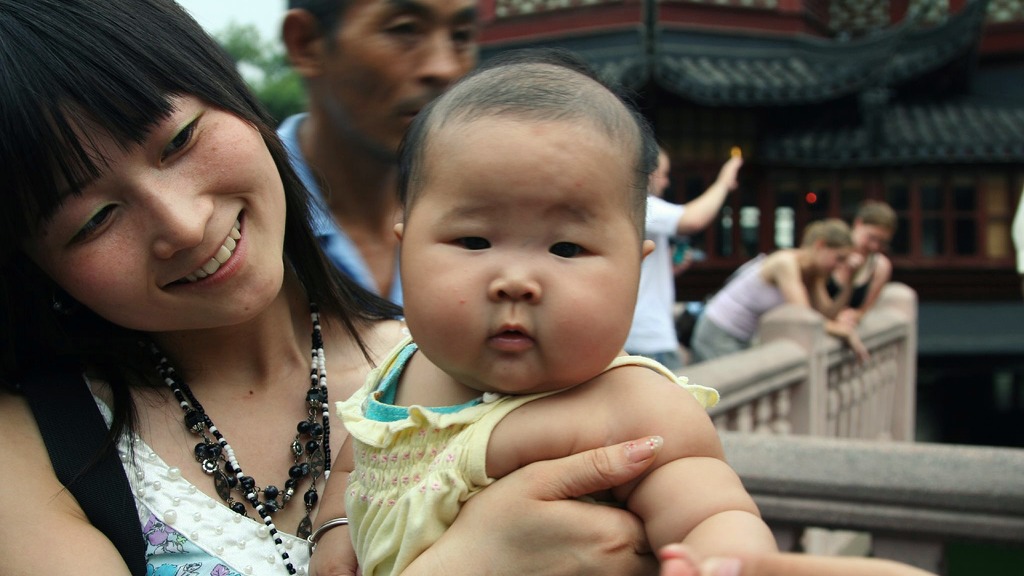Update (Nov. 2): China experts continue to caution that the Communist Party's policy change may not boost births or expand reproductive rights.
"While this news is widely welcomed, both inside and outside of China, it’s important not to overstate the significance, or mischaracterize what is happening," writes Joann Pittman of ChinaSource. "Most headlines [including CT's original] leav[e] the impression that the government has decided not to interfere in the matter of how many children a couple can have. That is not the case. There has been no change of heart as to the nature of the relationship between the citizen and the state."
The ChinaSource analysis offers a roundup of links, including China's official announcement, key stats, reactions on the streets and Weibo, and skeptical media assessments.
China Aid's Bob Fu told CT the new policy "is a positive step towards reproductive rights. However, the policy changes continue to enforce a coercive family planning system, which violently regulates the number of children permitted to be born and inherently contributes to the on-going genocide of girls in China."
—–
China will finally end the restrictive one-child policy that has reduced its population by 400 million over the past 35 years.
Communist Party officials announced plans to “fully adopt the policy that one couple is allowed two children,” reports The Washington Post (among other media outlets). The change marks an effort to address China’s aging population and “promote balanced population growth, stick to the basic state policy of family planning, and enhance population growth strategy.”
Demographic factors, especially in recent years, pressured China to adapt its controversial policy, which has resulted in a gender imbalance due to widespread sex-selective abortions. (If a couple is only allowed one child, many have preferred that the child be male.)
"Today is another day the Lord has done a great and mighty thing. Today is the day we watched God part China's red sea—the One-Child Policy—an act few ever thought was possible!" wrote Chai Ling and the All Girls Allowed (AGA) team in a statement. "The Lord answered our prayers in this year of Jubilee, the year of freedom and celebration!"
But the government's move still doesn't address the root problem, says Reggie Littlejohn, president of Women's Rights Without Frontiers, whose group has fought against China's one-child policy for years.
"Instituting a two-child policy will not end forced abortion, gendercide, or family planning regulations in China," said Littlejohn in a statement. "Couples will still have to have a birth permit for the first and the second child, or they may be subject to forced abortion…. It's the fact that the government is setting a limit on children, and enforcing this limit coercively. That will not change under a two-child policy."
The gender disparity is stark: today China numbers 116 boys to 100 girls (37 million more men than women total).
China changed its policy because of a scarcity of workers to support its aging population, said Joann Pittman, senior vice president at ChinaSource.
"However, the fundamentals of the issue will probably not change much, especially in the short run," Pittman told CT. "The state still mandates the number of children and the bureaucratic mechanisms of enforcement will likely remain in place. Furthermore, many young couples, particularly those in urban areas, will likely opt not to have a second child due to the cost."
CT noted when China first relaxed the policy in 2013, allowing up to 11 million couples to have a second child. But earlier this year, Premier Li Keqiang admitted that the reform had failed to trigger a surge in births: only 10 percent of eligible couples took advantage of the opportunity, with just 470,000 babies born as a result.
China's abandonment of the one-child policy came too little, too late, said Stephen Soukupm, a fellow at the Culture of Life Foundation.
"Beijing hasn’t relinquished any control of its citizens’ personal lives and family planning decisions; the government remains aggressively committed to controlling even the most private and intimate decisions of its citizens’ lives," he told CT. "Moreover, given the rapid graying of the population caused in large part by the previous policy, two children per couple would be nowhere near enough, even if young couples embrace the change…. If anything, the Chinese should probably be encouraging couples to have as many children as possible and making accommodations for them to do so, not continuing to restrict the birth rate artificially."
Top leaders hinted at an eventual two-child policy, as government-sponsored research has been recommending for years. China banned late-term forced abortions under the policy in 2012, although the significance of this move was disputed among opponents of the one-child policy.
Since its implementation in 1980, the controversial policy was never uniformly enforced; most rural families could have a second child if their first was a girl. In some provinces, couples could have two children if they were both only children, notes UCA News. In other areas, if the local official was Christian or Catholic, he or she might not enforce the policy.
Christian groups have long advocated for ending the one-child policy. CT interviewed AGA founder Chai on saving China's daughters, China Aid founder Bob Fu on where abortion meets human rights, and Nicholas Kristof of The New York Times on waking up the church to gender injustice.
CT's steady coverage of the one-child-policy includes a feature on gendercide, examining how sex-selective abortion in Asia has taken 163 million girls yet the gospel is slowly turning the tide.
CT also looked at whether praising incremental progress undercuts advocacy, as well as the detention and escape of blind human-rights lawyer Chen Guangcheng and whether pro-life groups misrepresented his advocacy.









